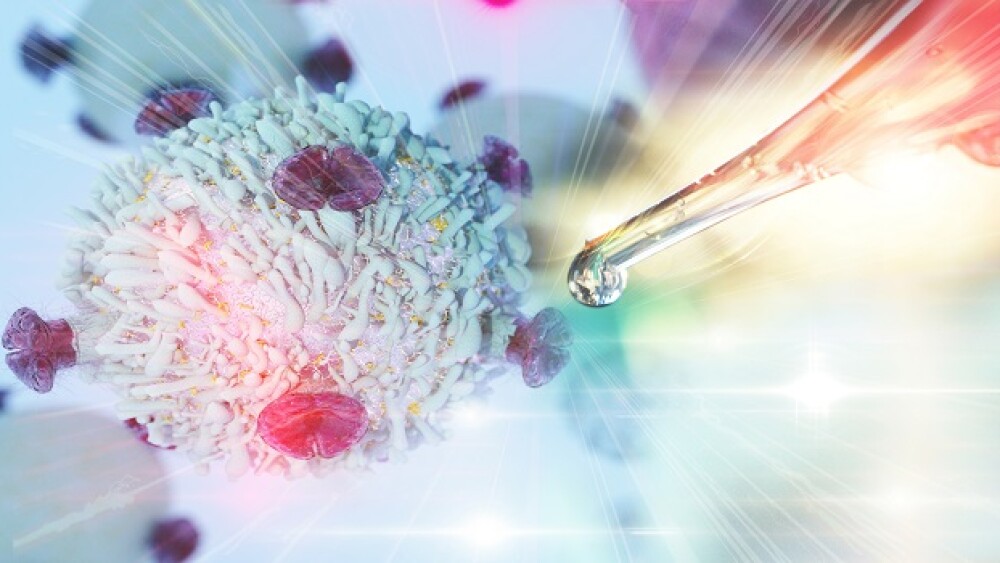The company bolstered its presence in oncology with the acquisition of the clinical and research-stage oncology business of Agios in a deal worth up to $2 billion.
France’s Servier is closing out 2020 with a bang. The company bolstered its presence in oncology with the acquisition of the clinical and research-stage oncology business of Agios Pharmaceuticals in a deal worth up to $2 billion.
News of the acquisition caused shares of Agios to soar more than 26% in premarket trading to $41.80.
Servier said the acquisition is in-line with the company’s strategic goal to become a “recognized and innovative player” in oncology. Servier has allocated 50% of its overall R&D budget to this therapeutic area. Agios’ oncology pipeline includes its oral leukemia treatment Tibsovo, which was approved by the U.S. Food and Drug Administration for patients with relapsed or refractory acute myeloid leukemia (R/R AML) with a susceptible isocitrate dehydrogenase-1 (IDH1) mutation. Tibsovo is also under investigation in two Phase III combination trials in newly diagnosed AML, and as a potential treatment for previously treated IDH1-mutant cholangiocarcinoma and IDH1-mutant myelodysplastic syndrome (MDS). With the acquisition, Servier increases its toehold in the U.S. market, which it established in 2018 with the launch of its U.S. subsidiary.
Other assets in the deal include vorasidenib, an investigational, brain-penetrant, dual inhibitor of mutant IDH1 and IDH2 being assessed in a Phase III trial in patients with IDH-mutant low-grade glioma, as well as AG-270, an investigational first-in-class methionine adenosyltransferase 2a (MAT2A) inhibitor and AG-636, a novel inhibitor of dihydroorotate dehydrogenase.
Servier will also acquire Agios’ co-commercialization responsibilities for Bristol Myers Squibb’s Idhifa (enasidenib). That means Servier will be responsible for conducting certain clinical development activities within that development program.
Two years ago, Servier acquired Shire’s oncology business for $2.4 billion, which includes Oncospar (pegaspargase), a treatment for acute lymphoblastic leukemia and ex-U.S. rights to Onivyde (irinotecan pegylated liposomal formulation) for pancreatic cancer.
Olivier Laureau, president of Servier, said the strategic acquisition of Agios’ oncology business supports the company’s goal of bolstering its presence in the lucrative oncology market and also supports its commitment to bringing new and innovative treatments to patients.
“It is a key step for the Servier Group as it will significantly strengthen our position in the U.S. and reinforce our R&D capabilities in oncology.”
Former Shire executive David K. Lee, chief executive officer of Servier Pharmaceuticals, the French company’s U.S. subsidiary, noted that Agios plays an important role in the cellular metabolism space and has an established track record of developing precision drugs.
“The acquisition of Agios’ oncology business, including highly experienced talent from research, development, technical operations and commercial functions, allows for an immediate expansion of our U.S. business into other hematologic malignancies and provides the potential for longer-term growth into the solid tumor space, thus ensuring that we can serve more patients living with unmet cancer needs than ever before,” Lee said in a statement.
Under terms of the deal, Servier paid Agios $1.8 billion upfront for the oncology business. The company could pay an additional $200 million in regulatory milestone payments, plus additional royalties.
In addition to its acquisition of Agios’ oncology business, Servier and Celsius Therapeutics inked a deal focused on the identification and validation of novel colorectal cancer (CRC) drug targets. Celsius will use its proprietary single-cell genomics platform to analyze hundreds of samples from defined CRC patient populations and will validate new drug targets over a three-year period. Servier will then have an exclusive option to research, develop, and commercialize products directed to up to three of the targets.
Under the terms of collaboration, Celsius will receive an upfront payment and research funding, and would be eligible to receive over $700 million in potential discovery, development, and commercialization milestone payments, along with tiered royalties.





